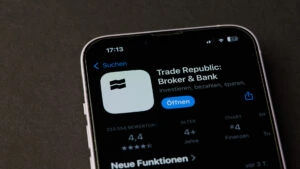The US government has called for Google to be broken up in court in Washington. The Department of Justice wants the internet company to be forced to divest its Chrome web browser business. Google is fighting back – and has already announced its intention to appeal.
Last August, a US judge ruled that Google had a monopoly in web search – and defended it against competitors by unfair means. The consequences will now be discussed in a follow-up trial in Washington from Monday.
At the start of the trial, the Ministry of Justice called on Judge Amit Mehta to set an example against competition law infringements, as the “New York Times” reported from the courtroom.
The government is also demanding further conditions for Google, such as the obligation to make some data from the search engine available to competitors. In addition, deals are to end in which Google pays other browser developers such as Firefox and Apple a lot of money to have the company’s search engine set as the default.
The government also wants a spin-off of the most widely used mobile operating system Android from Google to remain explicitly on the table as a possible demand for later.
Google is already planning an appeal
The trial is also likely to be just an interim step: Google has already announced that it will appeal afterwards. However, the Internet company must first await the decision on the consequences in order to be able to appeal the ruling from the monopoly trial.
Until then, Google counters that the government’s demands would harm consumers and slow down innovation. They are only aimed at driving more users to competing search engines that are demonstrably weaker than Google’s. The ruling does not state that Google has illegally obtained the monopoly position – but has only attempted to protect it unlawfully, the company emphasizes.
A forced separation from Chrome would have “extremely” serious consequences, warns Google. However, the company argues that such a step has nothing to do with the behavior classified as anti-competitive. As a result of the monopoly ruling, Google is offering to grant browser providers more flexibility in their search engine agreements.
Increasing pressure on Google
Just last week, Google suffered a defeat in court: A judge in the state of Virginia ruled that the company had gained a monopoly position on platforms for placing online advertising through unfair competition. Here, too, a second trial on punitive measures will follow later.
The same court in Washington is currently hearing the case in which the US government wants to force the spin-off of Instagram and WhatsApp from the Facebook group Meta. However, these proceedings are still in the first phase, which is concerned with determining possible breaches of competition law.
dpa





